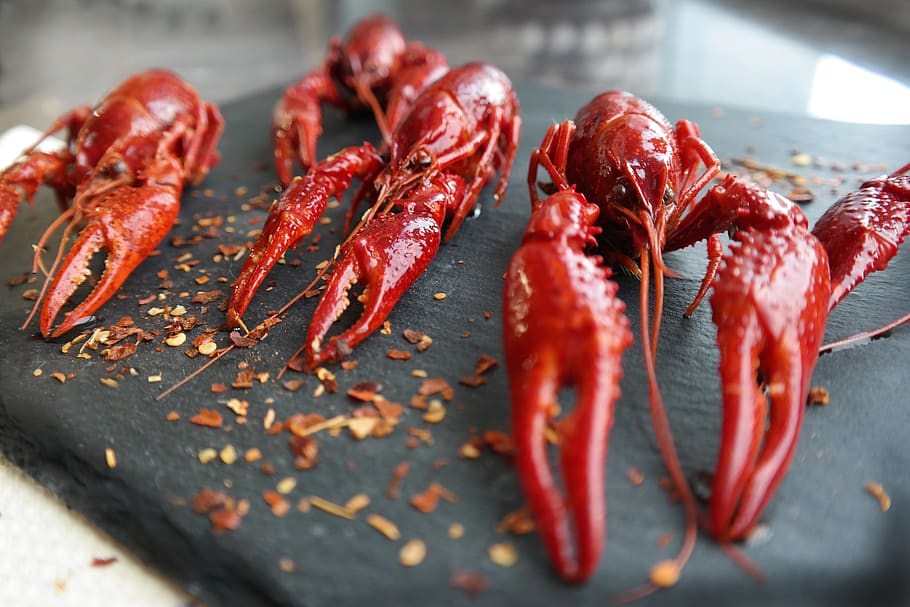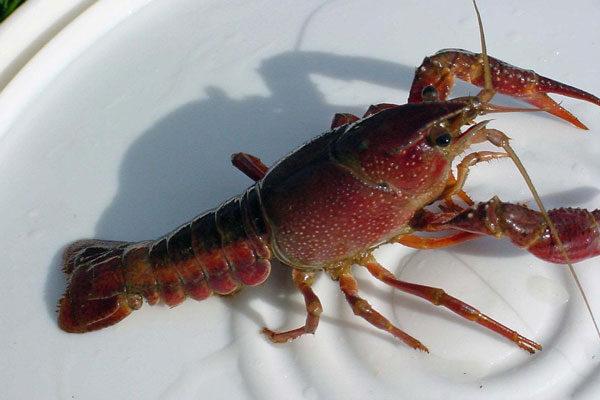
Colorado Parks and Wildlife is taking a closer look at potentially revising the rules around non-native crayfish – sometimes called crawfish or crawdads. The agency says importing and possessing crayfish that are not native to Colorado has been illegal for decades.
The crustacean in question is the red swamp crayfish, also called a Louisiana crayfish, and is native to several states bordering the Gulf of Mexico. Red swamps are said to be the most tasty crayfish species and because of their culinary reputation, importing them from states like Louisiana has become a market in Colorado, according to CPW’s spokesperson Joey Livingston.
Livingston said his agency received a tip recently that the crayfish were being brought to the state. That prompted Colorado Parks and Wildlife to ask the public for their opinion on the issue online.
Livingston said he is seeing support for changing these regulations based on the public comments he has seen so far.
“We are always changing here at CPW. We work for the public,” Livingston said. “Our goal is to keep the wildlife in the state here in perpetuity but we do work for the public, so if the public has broad support for making a change, we’re going to take the public’s opinion into account.”
Depending on the amount bought, online retailers can sell crayfish for hundreds of dollars from out of state. Because of the price, some community members expressed in comments in the online forum that they believe purposefully releasing them into waterways or using them as bait would be unlikely. However, “accidental things do happen,” said Livingston.
In 2009, CPW biologists discovered the invasive rusty crayfish species in the San Luis Valley and Yampa River Basin after some anglers supposedly used them as bait, Livingston said.
Any introduction of nonnative crayfish has the potential to disrupt native ecosystems as the crustaceans can outcompete and displace other species, according to Josh Nehring, assistant aquatic section manager at CPW. He called red swamp crayfish “opportunistic feeders.”

“They’ll typically feed on fish eggs, also invertebrates. Without knowing an exact situation with a particular water body they would be in, it’s hard to know exactly what the damage could be but there’s certainly potential,” he said.
Comments submitted electronically through the online public forum also express that red swamp crayfish might not be able to survive Colorado’s harsh winters.
Livingston said this might not be the case.
Scientists have determined that red swamp crayfish can survive in water temperatures just above freezing through 95 degrees Fahrenheit. Livingston said that the species has already established themselves in states like Utah, Washington, and Michigan, where water temperatures are similar to, if not colder than in Colorado.
An exact timeline for the agency to make a decision on any potential new rules has yet to be determined, however, members of the public can submit comments through July 30. These comments will then be reviewed by CPW staff in advance of its Aug. 24 - 25 meeting. Following that meeting, CPW will work toward a decision on whether hungry Coloradans can get their crayfish fix legally.









